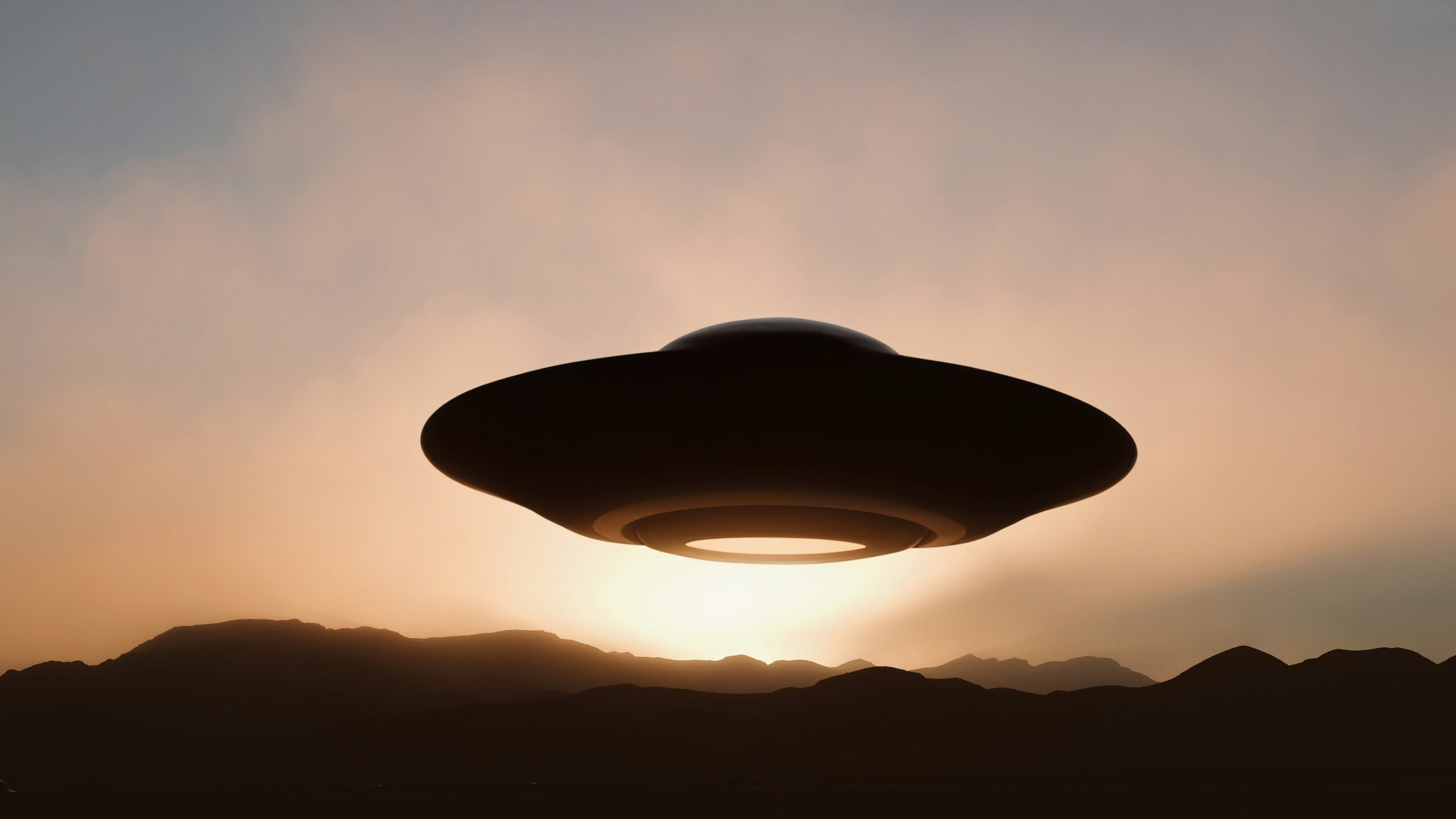Sometimes, a person’s faith can be shaken needlessly. This happens when someone erroneously thinks that if a given hypothesis were proven true, then Christianity would be disproven. Similarly, there are nonbelievers who think that, if certain things could be proven scientifically, then Christian faith would be irredeemably contradicted. The existence of extraterrestrial intelligence (ETI) or—to use updated nomenclature—nonhuman intelligence (NHI) is sometimes cited as an example. There are those who think that the discovery of intelligent alien life would, in fact, be an insuperable defeater against Christianity.
The seriousness with which the question is being discussed has grown substantially over the last several years and has heated up even more in recent months. An initial boost in interest was fueled by a late-2017 New York Times article1 that discussed government investigations into UFOs or UAPs (unidentified anomalous phenomena). The article reported on the existence of the previously classified AATIP (Advanced Aviation Threat Identification Program). “Among the anomalies the program studied, the paper said, were video and audio recordings of aerial encounters by military pilots and unknown objects, as well as interviews with people who said they had experienced physical encounters with such objects,” reports Jamie Crawford.2 Luis Elizondo, the former director of the Pentagon’s AATIP program, resigned due to his frustration over what he considered to be “excessive secrecy and internal opposition.”3
Another former intelligence officer and retired major in the United States Air Force, David Grusch, also resigned his position involving UAP investigation. As recently as July 26, 2023, Grusch testified under oath before the US House of Representatives’ national security subcommittee. In his opening statement, he asserted that he “became a Whistleblower, through a PPD-19 Urgent Concern filing with the Intelligence Community Inspector General (ICIG), following concerning reports from multiple esteemed and credentialed current and former military and Intelligence Community individuals that the US Government is operating with secrecy—above Congressional oversight—with regards to UAPs.” Although David Grusch did not acknowledge having any firsthand experience with UAP materials or alien entities, he nevertheless testified as follows: “I was informed, in the course of my official duties, of a multi-decade UAP crash retrieval and reverse engineering program.” While responding to a question posed by Rep. Nancy Mace, Mr. Grusch testified that he had been informed of the existence of recovered “biologics,” his term for bodies (alive or dead) of nonhuman intelligences associated with UAPs.4
Would it really be proof that our religion is false, as some scientists and atheists assert and some Christians fear?
Two naval aviators, Retired Commander David Fravor and veteran Ryan Graves, also testified alongside Mr. Grusch. They were witnesses to incidents involving purported US Navy encounters with UAPs. Mr. Fravor’s experience with what is commonly called the “Tic Tac” UFO occurred in 2004. A partial video of the incident was released, and it was not the only such video. As Stefan Becket reports: “The UAP issue has gained widespread attention from Congress and the public in recent years with the release of several video recordings of the encounters, which typically show seemingly nondescript objects moving through the air at very high speeds with no apparent method of propulsion.”5
However, another Pentagon-directed organization, AARO (All-domain Anomaly Resolution Office), released a report6 denying such claims. As C. Todd Lopez reports, “‘AARO has found no verifiable evidence that any UAP sighting has represented extraterrestrial activity,’ said AARO acting Director Tim Phillips.”7
Nevertheless, the presence of the abovementioned videos and the fervent testimony (under oath) of seemingly forthright and highly qualified witnesses has led to a much broader and stronger push for government disclosure on the UAP/NHI issue. Relatedly, a group of academics have started the Sol Foundation, an organization dedicated to well-funded and serious academic investigation into the UAP and NHI topics. Its membership includes Dr. Garry Nolan of Stanford University and Harvard physicist Dr. Avi Loeb. One of the organization’s advisors, Dr. Diana Walsh Pasulka, is Catholic and serves as a professor of religious studies at UNC-Wilmington.
These developments raise the question: If the government and/or scientific community were to claim to have verifiable evidence of nonhuman intelligent life, what would that mean for Catholics and other Christians? Would it really be proof that our religion is false, as some scientists and atheists assert and some Christians fear?
Personally, the question is not concerning to me, but there are people out there for whom the prospect of alien disclosure is a real source of religious and existential angst. To help ease the minds and calm the souls of those who might be struggling, I wanted to point to some respected Catholic thinkers who have investigated this issue much more thoroughly than I have.

One of them is Dr. Paul Thigpen, a prolific author and Catholic theologian known for his orthodoxy. He was also one of the speakers at a Sol Foundation Symposium held at Stanford University on November 17 and 18, 2023. Dr. Thigpen wrote a book related to the subject entitled Extraterrestrial Intelligence and the Catholic Faith: Are We Alone in the Universe with God and the Angels? In the book, he surveys the thought of many important Catholic thinkers, such as St. John Chrysostom; Fr. Réginald Garrigou-Lagrange, OP; Pope St. John Paul II; and St. Pio of Pietrelcina, among others. He addresses what Scripture and Catholic teaching have to say about the issue along with more speculative questions, such as whether Jesus’ redemptive work would apply to ETs. He was also interviewed about the book on Matt Fradd’s Pints with Aquinas YouTube channel. Spoiler Alert: Dr. Thigpen concludes that the Catholic faith would not be undermined by the discovery of extraterrestrial intelligence.
To give an example of a puzzling question addressed in Dr. Thigpen’s work, he treats whether God could have become incarnate in an alien species in addition to his human incarnation (ch. 13). To answer that question, he draws from and extends an argument made by St. Thomas Aquinas in Summa theologiae 3.3.7. In that article, Aquinas asks “whether one divine Person can assume two human natures?” and his answer is: yes! Aquinas is insistent: “It has to be said that the Divine Person, over and beyond the human nature which He has assumed, can assume another distinct human nature.” Well, if the Second Person of the Trinity could become incarnate in two human natures, then surely he could become incarnate in a second, nonhuman rational nature, such as an alien extraterrestrial intelligence. In the prior chapter (ch. 12), Dr. Thigpen responds to other questions related to ways aliens could be redeemed, if they even fell. St. Pio of Pietrelcina apparently thought that there were alien species and that some of them did not fall into sin (see ch. 8).
The well-respected Catholic Answers apologist Jimmy Akin has also treated this topic; it is an area of particular interest to him. Like Dr. Thigpen, Jimmy Akin thinks the existence of extraterrestrial, nonhuman intelligence is compatible with the Catholic faith, as he argues in an interview and on an episode of his Jimmy Akin’s Mysterious World podcast. In the interview, he discusses why he does not think the existence of ETIs would be contrary to the faith. Against those who claim they could not exist because they are not mentioned in the Bible, he points to a historical analogue where some people made similar arguments but were proven wrong: medieval debates (prior to the discovery of the New World) over whether there could be humans living on the other side of the globe. In the latter episode, he speculates intelligently (from a Catholic perspective) about a wide variety of interesting—and perhaps even “off-the-wall”—questions. For example, he discusses whether NHIs could receive sacraments and, if so, which ones.
To be clear, neither Dr. Thigpen nor Jimmy Akin are claiming that the Catholic Church teaches that intelligent extraterrestrials do exist. Neither are they claiming that one must believe in the possibility of intelligent alien life. They merely offer arguments for why they think the existence of such beings would not contradict the Catholic faith.
Personally, I do not have an opinion on the existence or nonexistence of corporeal (as opposed to angelic) nonhuman intelligences. However, the recent escalation in government and media coverage of this issue has led some people to perceive it as an existential threat to Christianity. Thus, I thought it would be helpful to highlight some easily accessible Catholic resources that address this issue for the sake of those whose consciences are perturbed by the question. Less dramatically, the mentioned resources might be of interest to people who are merely curious about how the existence of ETs would be compatible with Christianity. Either way, I hope they can be of assistance.
1 Helene Cooper, Ralph Blumenthal, and Leslie Kean, “Glowing Auras and ‘Black Money’: The Pentagon’s Mysterious U.F.O. Program,” The New York Times (Dec. 16, 2017).
2 Jamie Crawford, “NY Times: Pentagon study of UFOs revealed,” CNN (Dec. 19, 2017).
3 Cooper et al., “Glowing Auras.”
4 The hearing, including David Grusch’s testimony, can be found here: https://www.youtube.com/watch?v=KQ7Dw-739VY&t=7602s with biologics mentioned around the 2:07:00 mark.
5 Stefan Becket, “UFO hearing key takeaways: What a whistleblower told Congress about UAPs,” CBS News (July 28, 2023).
6 The Department of Defense All-Domain Anomaly Resolution Office, “Report on the Historical Record of U.S. Government Involvement with Unidentified Anomalous Phenomena (UAP),” vol. 1 (February 2024). A second volume of the report is expected to release later this year (2024).
7 C. Todd Lopez, “DOD Report Discounts Sightings of Extraterrestrial Technology,” DOD News (March 8, 2024).
